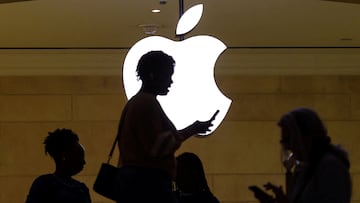Why Warren Buffett is divesting from Apple and Bank of America: Here’s the Oracle of Omaha and Berkshire Hathaway’s strategy
Billionaire investor Warren Buffet’s Berkshire Hathaway has two-thirds of its Apple holdings. What caused the sell-off?


According to Fortune Magazine, Berkshire Hathaway has sold two-thirds of its shares in Apple over the last year. For those holding stock in Apple, the news that Berkshire Hathaway, the multinational conglomerate owned by billionaire Warren Buffet, sold half of his holdings in the technology company cannot sit well. However, before you panic and sell, consider what led Berkshire Hathaway to make that decision.
One of the last major sell-off events was shortly before the election, which could indicate that the portfolio’s lead investors were concerned that if elected, Vice Presidnet Kamala Harris would have increased the capital gains tax rate on long-term investments from 20 to 28 percent. Earlier this year, the company indicated an interest in increasing its cash reserves, which has partly motivated the Apple selling spree. Donald Trump has not announced any similar policies, which could lead Berkshire to increase stock holdings over the coming years.
Apple’s stock price is at one of its highest levels ever, so if you follow the “buy low, sell high” rule in your trading, it may not seem like a bad time to trade your stocks for some cash. Additionally, thanks to the herd mentality often seen by stockholders, when the selling begins, the price of a stock can fall, prompting others to sell before it hits its lowest point.
Berkshire Hathaway walks away from Apple
Related stories
Peter Cohan, a senior contributor at Forbes and a financial markets expert, had trouble definitively saying why Berkshire would make such a dramatic move but mostly chalked it up to Apple’s slow growth prospects.
While Apple’s AI offerings could give consumers a reason to upgrade, the iPhone maker’s declining revenues in China, its regulatory woes, and the absence of a compelling growth vector — particularly if Apple Intelligence does not prove to be a killer app — could mean Apple will be lucky to achieve low single digit revenue growth.
Peter Cohan in Forbes
Before you sell, consider that though Berkshire Hathaway’s move on Apple forms part of a longer-term trend within the conglomerate market activity, which has been much more focused on selling than buying. In the first quarter of 2024, Berkshire spent $2.56 billion on stock buybacks to inflate the value of their own stock. By purchasing their own stock, they decrease the supply, and with a smaller supply, the price pushes up should demand remain constant.
Complete your personal details to comment